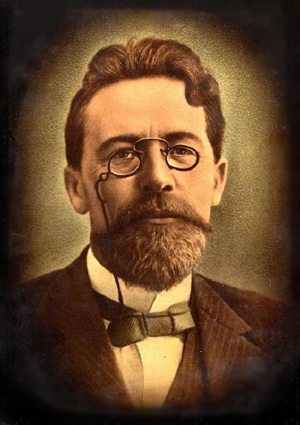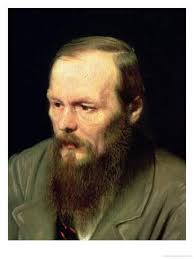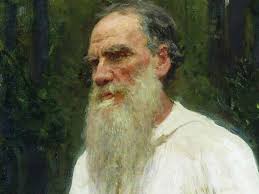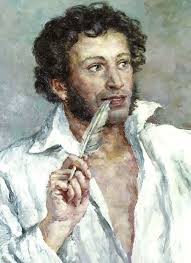The Best Russian Authors
|
| 5 |
 |
Anton Chekhov
Anton Chekhov, in full Anton Pavlovich Chekhov, (born January 29 [January 17, Old Style], 1860, Taganrog, Russia—died July 14/15 [July 1/2], 1904, Badenweiler, Germany), Russian playwright and master of the modern short story. He was a literary artist of laconic precision who probed below the surface of life, laying bare the secret motives of his characters.
Anton Pavlovich Chekhov was a Russian physician, playwright and author who is considered to be among the greatest writers of short stories in history. His career as a playwright produced four classics and his best short stories are held in high esteem by writers and critics.
|
| 4 |
 |
Fyodor Dostoyevsky
Dostoyevsky is usually regarded as one of the finest novelists who ever lived. Literary modernism, existentialism, and various schools of psychology, theology, and literary criticism have been profoundly shaped by his ideas. His works are often called prophetic because he so accurately predicted how Russia’s revolutionaries would behave if they came to power. In his time he was also renowned for his activity as a journalist.
Fyodor Mikhailovich Dostoyevsky, sometimes transliterated Dostoevsky, was a Russian novelist, short story writer, essayist, journalist and philosopher. Dostoyevsky's literary works explore human psychology in the troubled political, social, and spiritual atmosphere of 19th-century Russia
|
| 3 |
 |
Leo Tolstoy
Russian author Leo Tolstoy wrote the acclaimed novels 'War and Peace,' 'Anna Karenina' and 'The Death of Ivan Ilyich,' and ranks among the world's top writers.
Count Lev Nikolayevich Tolstoy, commonly referred to as Leo Tolstoy, was a Russian novelist, short story writer, essayist, playwright and philosopher who primarily wrote novels and short stories. Tolstoy was a master of realistic fiction and is widely considered one of the greatest novelists of all time.
n September 9, 1828, Leo Tolstoy was born in Tula Province, Russia. In the 1860s, he wrote his first great novel, War and Peace. In 1873, Tolstoy set to work on the second of his best known novels, Anna Karenina. He continued to write fiction throughout the 1880s and 1890s. One of his most successful later works was The Death of Ivan Ilyich. Tolstoy died on November 20, 1910 in Astapovo, Russia.
|
| 2 |
 |
Nikolai Gogol
Ukrainian scholars debate whether or not Gogol was of their respective nationalities. Considered by his contemporaries one of the preeminent figures of the natural school of Russian literary realism.
Nikolay Gogol, the author of the first great Russian novel of the 19th century, Dead Souls, as well as two classic plays and some of the finest short stories written in any language, was a true literary oddity. His peculiar, unhappy life and his uniquely dark comic sensibility have been consistently misunderstood by posterity, with critics fiercely debating his nationality, his religious beliefs, and even his sexuality. What has never been in doubt, however, is his immense literary talent which, while essentially sui generis, provided a template for the absurdist, surreal streak in Russian literature that continues to bear fruit to this day. Along with Alexander Pushkin, he also established a literary pattern for the depiction of St. Petersburg as a city of ambiguity and even monstrosity, life in which proves untenable for many of his long-suffering protagonists.
|
| 1 |
 |
Alexander Sergeyevich Pushkin
Alexander Sergeyevich Pushkin was born on the 26th of May, 1799 in Moscow in the noble family (his father was the retired major).
In the same day the emperor's granddaughter was born. That's way the chimes had been heard all over the town during the whole day. So, on casual concurrence of events the birthday of the Russian genius was marked by people's rejoicing . The place of his born is also symbolic- Moscow is the heart of Russia, Russian life.
he was working on his first large-scale work, Ruslan and Ludmila. The ideas of civic freedom and political rationalism which soared in the air that time reflected in Pushkin`s poems and in the behaviour of the young poet. " Pushkin must be exiled to Siberia! He has flooded Russia with the scandalous poems! All the youth is reading it!"- that was the decision of the Russian tzar. Thanks to his friends, Pushkin had been exiled to the South. So, In April 1820, his political poems led to an interrogation by the Petersburg governor-general and then to exile to the South Russia, under the guise of an administrative transfer in the service. Pushkin left Petersburg for Ekaterinoslave on May 6, 1820.Soon after his arrival then he travelled around the Caucasus and the Crimea with the family of General Rayevsky. During almost three years in Kishinev, Pushkin wrote his first Byronic verse tales, "The Bandit Brothers" (1821-1823). He also wrote "Gavriliada" (1821), a light approach to the Annunciation, and he started his novel in verse, Eugene Onegin (1823-1831).
|




